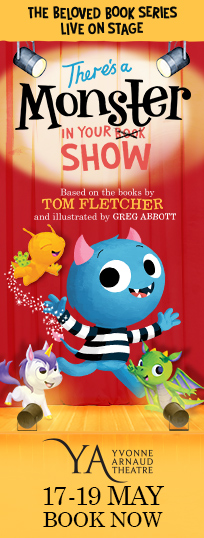

When we tell kids to put away the guitar, or stop diving into vintage fashion, and get back to “real work” (that is, schoolwork), we’re telling them that learning and joy are separate.
It’s common to keep work and play separate. Personal projects often look like play, and we tend to think that play and learning shouldn’t overlap. The same goes for adults: hobbies are for after you punch out for the day.
But by keeping hobbies on the sidelines, we miss a key opportunity to learn from diving into projects of our own.
Projects of Our Own
We feel most ourselves when we work on projects of our own. These projects may not give us constant satisfaction (every writer puzzles over their pages), but they are where we feel the most engaged and uninhibited.
The same applies to kids. When kids work on projects of their own, they set aside everything but the task at hand. They’re focused on thinking, learning, and doing. It’s hard work, but hard work they choose voluntarily.
Let’s use investor Paul Graham’s example of building treehouses.
At a first glance, the project may seem like nothing more than play. But when building a treehouse, kids learn about all sorts of things like math, engineering, and teamwork. They are thinking, making plans, and solving problems. Most importantly, they are highly engaged in the experience because they get to direct and manage their learning on their own.
In other words, projects of their own create the perfect conditions for genuine learning.
Yet in school, we continue to treat voluntary projects as different from real work. We label core topics as “curriculum” and fun ones as “extracurricular.” We make kids believe that the path to success is through schoolwork and fail to emphasize that by working on projects of their own, they also engage in real and useful learning.
As Paul Graham writes:
“It’s a bit sad to think of all the high school kids turning their backs on building treehouses and sitting in class dutifully learning about Darwin or Newton to pass some exam, when the work that made Darwin and Newton famous was actually closer in spirit to building treehouses than studying for exams.”
Real learning happens when we work intensely on things that matter to us—and no one gets this better than kids. That’s why they drag their feet as they walk to school in the fall and sprint away in the summer.
Imagine if they had more opportunities to learn around projects they got to choose—not just curriculums or academic tasks. Wouldn’t kids be more engaged? Wouldn’t this lead them to love school and learning?
A wonderful 11-year-old interviewed me for his podcast, Kids Learn Careers. Every week, he talks with a different person about their job so other kids can learn about the career options in today’s world. I was fascinated by his passion and how much time and effort he has put into this project. Instead of viewing this podcast as just another after-school activity, his parents helped him see it as an opportunity to create value.
Many famous scientists, writers, artists, and entrepreneurs succeeded not because they were good in school, but because they allowed their projects outside of school to consume them. Mark Zuckerberg dropped out of college to work on his platform for student networking called Facebook. Elon Musk turned down a Stanford PhD program to build Zip2, his first company. Jeni Britton Bauer quit her fine arts degree to start the wildly successful Jeni’s Splendid Ice Creams chain. In her words: “I just walked out, left all my art supplies there, and rode my bike home to go make ice cream.”
Zuckerberg, Musk, and Britton Bauer may seem like exceptions— and that shows how rarely people get the freedom to take seriously the project they care about most.
Let’s normalize encouraging kids to work on projects of their own. Let’s create the conditions for healthy obsessions to happen. Let’s applaud kids for pursuing their curiosities. Let’s make them feel like they’re learning when it could seem like they’re playing. Because they are learning, and they’re also learning to love learning.
Edited extract from The Learning Game: Teaching Kids to Think for Themselves, Embrace Challenge, and Love Learning by Ana Lorena Fábrega is published on 05 September 2023 by Harriman House.



